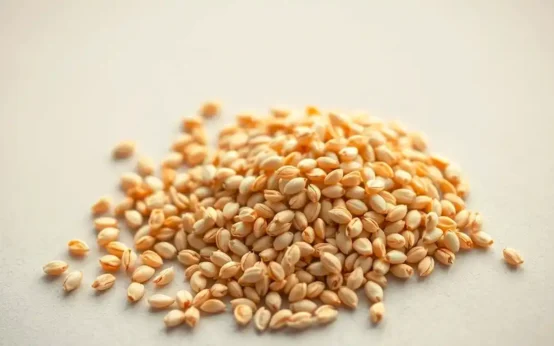Bloating feels uncomfortable, often causing your belly to feel puffy or tight. Triggers can include overeating, certain foods, stress or even digestive conditions. As more people look for natural fixes, apple cider vinegar has gained attention for gut relief.
Many wonder, can apple cider vinegar help bloating or is it just another wellness trend? Bloating relief is more than just a quick fix, it’s about understanding what helps your body feel better every day. In this post, you’ll get the facts on apple cider vinegar, see what research says and pick up practical tips that truly support digestive comfort. If you’re also interested in other natural solutions, take a look at how coconut water and other options can help you detox your whole body at home for more ways to feel your best.
Understanding Bloating: Causes and Symptoms
Bloating can sneak up on anyone, making your stomach feel swollen, gassy, or even achy. This sensation often comes with a feeling of pressure or fullness that lingers, especially after eating. Pinpointing the source of bloating—and figuring out if something like apple cider vinegar can really help—starts with knowing why it happens.
Common Triggers of Bloating
Bloating happens for many reasons, but a few causes stand out. Some are rooted in what we eat, while others connect to how our bodies process food or even how much stress we’re carrying around. Below are some frequent triggers:
- Overeating or Eating Too Fast: Eating large meals or wolfing down food without chewing can lead to excess air and gas in your stomach.
- Gassy Foods: Beans, cabbage, broccoli, onions, and carbonated drinks are bigger offenders when it comes to building up gas.
- Dairy or Food Intolerances: People sensitive to lactose or gluten might get bloated when eating dairy products or wheat-based foods.
- Artificial Sweeteners: Sorbitol or xylitol found in sugar-free gum and foods can ferment in your gut and cause discomfort.
- Digestive Disorders: Constipation, irritable bowel syndrome (IBS), or small intestinal bacterial overgrowth (SIBO) often lead to persistent bloating.
- Hormonal Changes: Many women notice bloating during PMS due to hormonal shifts influencing digestion.
- Stress: Anxiety and stress tense up your digestive system, making it sluggish and prone to gas build-up. Focusing on ways to ease digestion stress can help tame tummy troubles triggered by stress.
Each person’s body reacts in its own way, but most people will spot patterns in what makes their belly balloon. Think about your eating habits and triggers. Tweaking meals and slowing down might help you notice a big difference.
The Role of Digestive Health in Bloating
A healthy gut is crucial for keeping bloating in check. When your digestive system works smoothly, food is broken down properly, and gas doesn’t linger long. But poor gut health makes the process sluggish, and bloating is quick to follow.
Your daily diet, hydration, and even the types of seeds you eat can shape your digestive health. Fiber-rich foods, healthy fats, and the right mix of gut-friendly bacteria all play a part. Take chia seeds, for instance. Adding these tiny seeds into meals boosts fiber and helps keep digestion on track. For more on their effect, read about the health benefits of chia seeds.
Here are a few ways diet and lifestyle affect your digestive health and chances of bloating:
- Fiber: This keeps waste moving and prevents build-up. Too little can cause constipation and bloating.
- Hydration: Water helps fiber do its job and keeps digestion steady.
- Gut Bacteria: The balance of bacteria in your gut decides how easily you digest food and how much gas is produced. Eating a variety of whole foods and considering foods that balance gut bacteria can make a big difference.
- Positive Habits: Regular movement and stress reduction keep digestion on an even keel.
Remember, your gut is like a garden—the right care lets it thrive. Changing your daily routine and food choices can help answer the question: can apple cider vinegar help bloating, or do you need to look at the big picture of digestive health?
Apple Cider Vinegar and Digestive Health
Apple cider vinegar (ACV) is more than a staple for salad dressings and quick pickles. For centuries, people have used it as a natural remedy, especially for digestive concerns. Now, with so many searching for gentle ways to feel less bloated, it makes sense to see if this pantry classic truly delivers. Here’s what you need to know about whether apple cider vinegar can help with bloating, how it interacts with your gut, and a look at the real-world evidence.
How Apple Cider Vinegar Is Thought to Work in the Gut
ACV starts as apple juice, but after fermentation, it turns into a tangy liquid loaded with acetic acid and beneficial plant compounds. Some bottles even contain the “mother”—a mix of enzymes, proteins, and good bacteria floating in the bottle—that many say helps with gut health.
People believe ACV may:
- Boost stomach acid: Some suspect that a sluggish or low-acid stomach can let food linger and ferment, causing gas and bloat. Sipping ACV before meals could, in theory, stimulate stomach juices and help break down food more efficiently.
- Support healthy bacteria: The raw, unfiltered kind includes probiotics from the fermentation process. These might help balance gut flora, the tiny organisms that live in your digestive tract and support a healthy belly.
- Aid in digestion: By mimicking acidic conditions in the stomach, ACV could, for some, aid the breakdown of foods that are tough to digest.
While these ideas sound promising, much of the science is still catching up to tradition.
Review of Evidence: Can Apple Cider Vinegar Help Bloating?
When tackling the question, can apple cider vinegar help bloating, it’s vital to split fact from hope. Let’s break it down by looking at both scientific studies and what people report.
Clinical Research:
- There’s limited direct research. Most studies on apple cider vinegar focus on blood sugar or cholesterol, not on bloating or gas.
- Some small studies hint at improved digestion or stomach emptying, especially for people with certain digestive slowdowns.
- No large-scale studies have proven that ACV consistently reduces bloating for everyone.
Anecdotal Reports:
- Plenty of people swear by a tablespoon of ACV mixed in water before a meal to prevent a puffy belly.
- Users sometimes report less gas and a flatter stomach, but results are mixed—what works for one person might not work for another.
- Common routine: People often dilute 1-2 teaspoons of apple cider vinegar in a big glass of water, then sip before eating.
Potential Benefits:
- If bloating comes from sluggish digestion (like after a big meal), ACV might help some people feel lighter.
- Those with low stomach acid or mild bacterial imbalances may benefit, at least anecdotally.
Limitations:
- Not a cure for everyone. It won’t help if your bloating is due to a medical condition like IBS, food intolerance, or chronic constipation.
- The need for more research is clear. Most claims ride on tradition or user stories, not strong clinical proof.
Precautions and Possible Side Effects
Apple cider vinegar can offer gentle digestive support—but only when used wisely. Using too much or relying on it as a quick fix can cause new problems.
Who Should Avoid Apple Cider Vinegar:
- Individuals with ulcers, gastritis, acid reflux, or sensitive stomach lining should skip ACV as it may cause burning or discomfort.
- People with diabetes, dialysis patients, or those taking diuretics or certain heart meds should check with a doctor first.
Possible Risks and Overuse:
- Tooth enamel damage: ACV’s strong acid can wear away your teeth if you drink it too often or without diluting.
- Throat or stomach irritation: Taking ACV straight or in high doses can lead to soreness or more digestive upset.
- Medication interactions: It can interfere with insulin, potassium, or water pills.
Safe Usage Tips:
- Always dilute apple cider vinegar in at least 8 ounces of water.
- Start with a small amount: 1 teaspoon before meals is plenty for most.
- Do not overdo it—once or twice a day is enough for most people.
- Rinse your mouth after drinking to protect your enamel.
- Listen to your body. If you feel worse, stop and consider different strategies.
Using apple cider vinegar as part of a thoughtful, balanced plan is safest. The goal is long-term gut health, not just a quick fix.
Practical Tips for Using Apple Cider Vinegar for Bloating Relief
If you’re curious about trying apple cider vinegar to ease that puffy, gassy feeling, you want clear, safe advice. While research on the question “can apple cider vinegar help bloating” is still growing, many people find practical comfort using this ancient pantry staple. Here’s how to use apple cider vinegar for bloating relief with confidence and what other natural remedies are worth considering.
How to Take Apple Cider Vinegar Safely
When adding apple cider vinegar to your routine, keeping it safe is key. Using it the wrong way can cause more discomfort than relief, so start slow and listen to your body.
Start with these steps:
- Dilute Every Time: Mix 1 or 2 teaspoons (not tablespoons) of raw, unfiltered apple cider vinegar into a large glass of water (8 ounces or more). Never drink it straight—its strong acid can harm your teeth and stomach lining.
- Best Time to Take: Drink your mix about 15 to 20 minutes before meals. This gentle timing helps some people handle big, heavy, or slow-to-digest foods with less bloating.
- Dosage Matters: Stick with once a day at first. If it feels right, you can try up to two doses per day, but always diluted and never on an empty stomach.
- Rinse Your Mouth: After drinking, rinse your mouth with plain water. Apple cider vinegar’s acid can wear away at your tooth enamel if left sitting on your teeth.
- Skip the Gimmicks: Vinegar gummies and capsules often skip the helpful “mother” and can be less predictable. The real liquid, when used right, offers more control.
- Listen to Your Body: If you notice burning, stomach pain, nausea, or other side effects, stop. Your body will tell you when something doesn’t work for you.
Adding apple cider vinegar is just one piece of the digestive puzzle. For some, it makes a real difference, while others notice little to no change. The only way to know is to try carefully and see how your body responds over a week or two.
Other Natural Remedies to Consider
While many are eager to find out, “can apple cider vinegar help bloating,” true digestive comfort often comes from a combination of small changes and simple home remedies. Here are safe ways to feel better, alongside or instead of vinegar:
- Stay Hydrated: Drinking plenty of water throughout the day can help prevent both bloating and constipation.
- Eat Slowly: Chewing food well and eating at a relaxed pace stops extra air from being trapped in your belly.
- Peppermint Tea: This classic herbal tea can calm your stomach muscles and ease that tight, bloated feeling.
- Ginger: Sipping on ginger tea or adding fresh ginger to meals can kickstart digestion and reduce gassiness.
- Movement: Even a gentle walk after eating helps your system move food and gas along, keeping bloating at bay.
- Probiotic Foods: Yogurt with live cultures, kefir, and naturally fermented vegetables can support healthy gut bacteria, helping you avoid and manage bloat. To add more gut-friendly foods to your diet, check out the line-up of immune system boosting foods that double as digestive helpers.
- Mindful Eating: Reducing carbonated drinks, artificial sweeteners, or high-fat fried foods can stop bloating before it starts.
For overall wellness, it pays to make smart daily choices—think of it like building a strong base layer for your gut health. Consider easing into consistent routines, eating more fiber, and trying a few herbs and spices for wellness to make each meal work for you.
Before starting any supplement or changing your routine, especially if you take medication or have a medical condition, check with your healthcare provider. They can help you find safe, effective choices.
As a reminder, simple home care isn’t just for digestion. From belly woes to “Home Remedies for Nail Fungus,” you’ll find practical solutions for many common challenges on your wellness journey.
Putting safe apple cider vinegar use side-by-side with other healthy habits makes it easier to answer: can apple cider vinegar help bloating? For most, a thoughtful, gentle approach brings the best results.
Conclusion
Using apple cider vinegar for bloating has its fans, but the evidence is mostly personal stories and tradition. For some, a small, diluted dose before meals feels helpful, especially when bloating stems from sluggish digestion. For others, results are less clear or even uncomfortable.
A personalized plan is key. Listen to your own body and talk to a healthcare provider before adding anything new to your routine. True digestive wellness is bigger than any single remedy, your daily habits, hydration, and whole foods matter just as much as any supplement. If you want more ways to feel comfortable after meals, try adding a variety of seeds to your diet for a gentle, natural boost as explained in this guide to best seeds for digestion.
FAQ:
Does apple cider vinegar actually help with bloating?
There’s little solid evidence that apple cider vinegar (ACV) directly relieves bloating. Some people say it helps, but most studies haven’t found a clear benefit. Its effects depend on the cause of your bloating.
How might apple cider vinegar reduce bloating?
ACV contains acids and good bacteria, which could help digestion for some people. It might help your stomach break down food a bit faster, but this hasn’t been proven for everyone.
Can apple cider vinegar make bloating worse?
Yes, it can. ACV is acidic, so it may irritate your stomach or trigger acid reflux in some people. If you feel worse after trying it, stop using it.
What’s the best way to take apple cider vinegar for bloating?
If you want to try it, start with one to two teaspoons in a large glass of water before meals. Never drink ACV straight. Always dilute it, as it’s strong and could harm your teeth and throat.
How soon will I notice any effects?
Some people notice changes after a few days, while others feel nothing at all. There’s no guaranteed timeline since results depend on your body and the cause of bloating.
Is it safe to use apple cider vinegar every day?
A little diluted ACV is safe for most healthy people. Large amounts can hurt your stomach, teeth, and even your potassium levels. Don’t take more than the recommended amount.
Who should avoid apple cider vinegar for bloating?
Skip ACV if you have ulcers, acid reflux, chronic indigestion, or kidney problems. Pregnant people, those on certain medicines, or anyone with health concerns should check with a doctor first.
Are there better ways to manage bloating?
Yes. Drinking more water, eating slower, and choosing less processed foods usually help more than ACV. If bloating sticks around, talk with a healthcare provider about what might be causing it.
Does apple cider vinegar work for everyone?
No, and it’s not a cure-all. Some people feel better, some don’t notice a difference, and others feel worse. It’s important to listen to your body.
Should I be worried about drug interactions with apple cider vinegar?
ACV can interact with some medicines, such as diuretics and insulin. If you take regular medications, ask your doctor before adding ACV to your routine.



 Health Benefit of Sesame Seed
Health Benefit of Sesame Seed  Healthiest Breakfast Cereal for Children
Healthiest Breakfast Cereal for Children  How To Remove Sun Tan From Hands
How To Remove Sun Tan From Hands  Vegan Oil Free Mayonnaise Recipe
Vegan Oil Free Mayonnaise Recipe  How to Take Care Your Nails
How to Take Care Your Nails  Nutrition to Enhance Athletic Performance
Nutrition to Enhance Athletic Performance